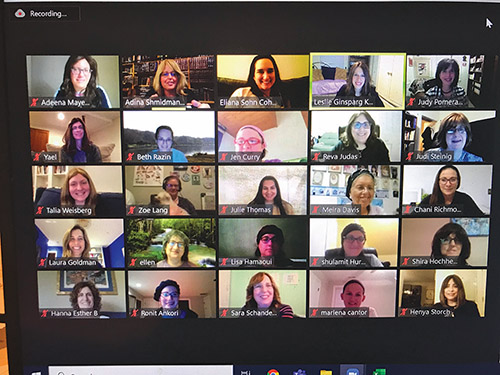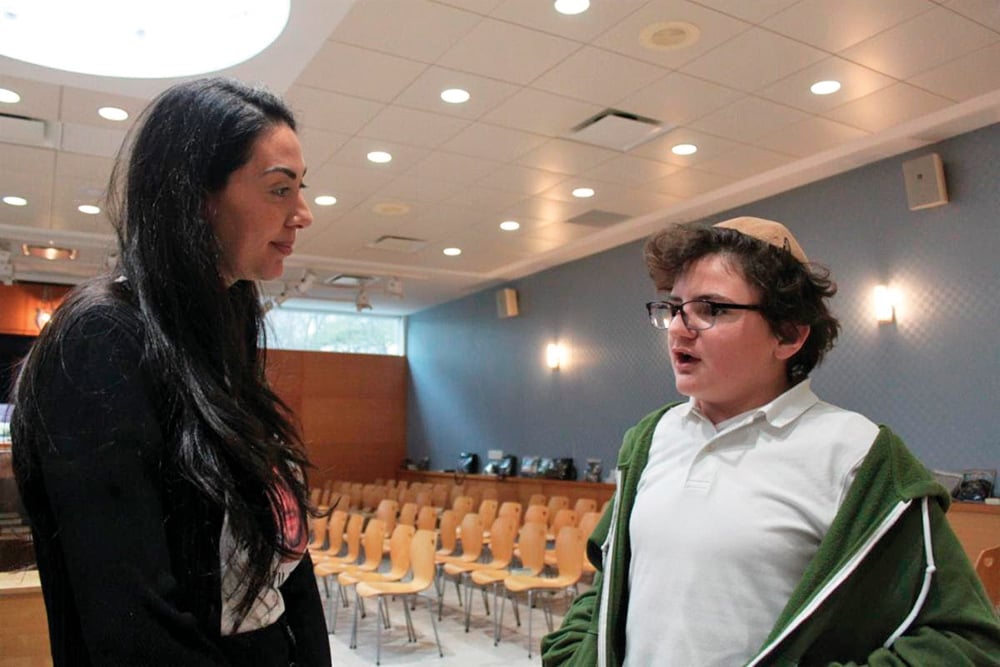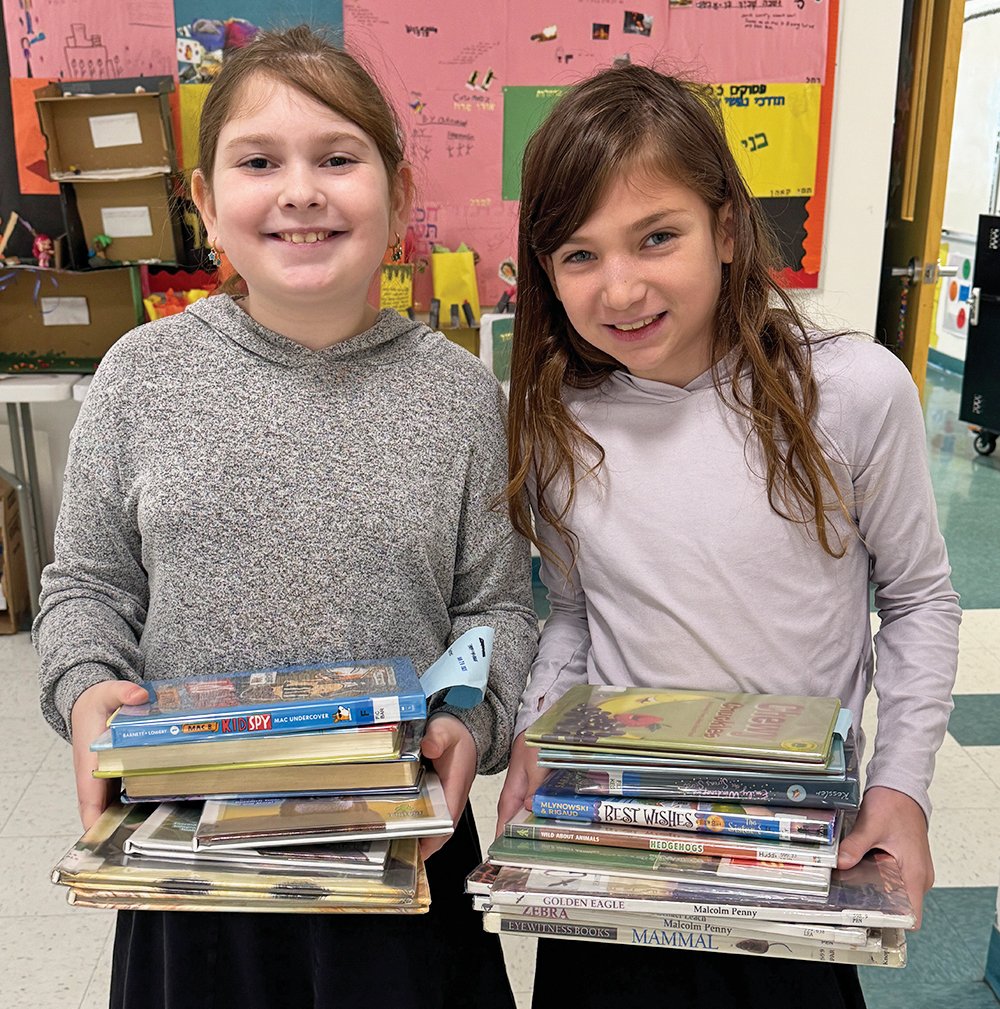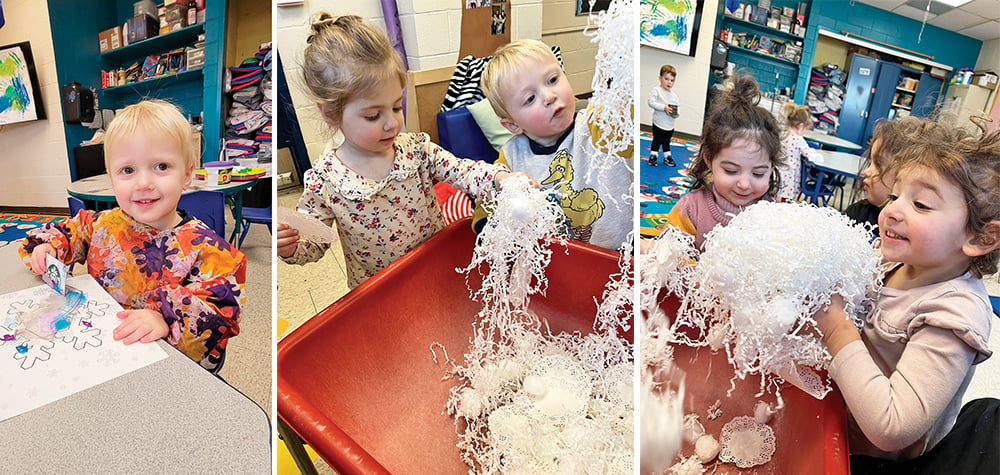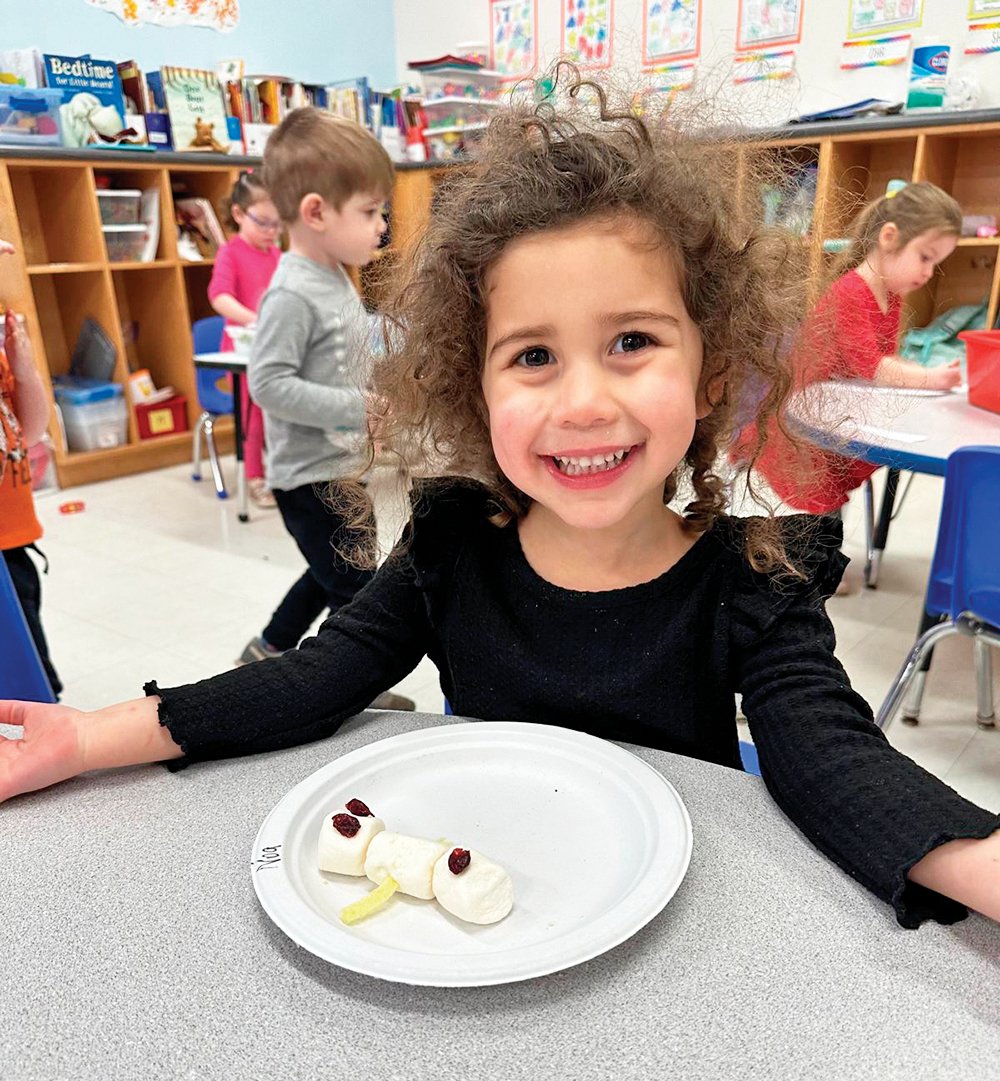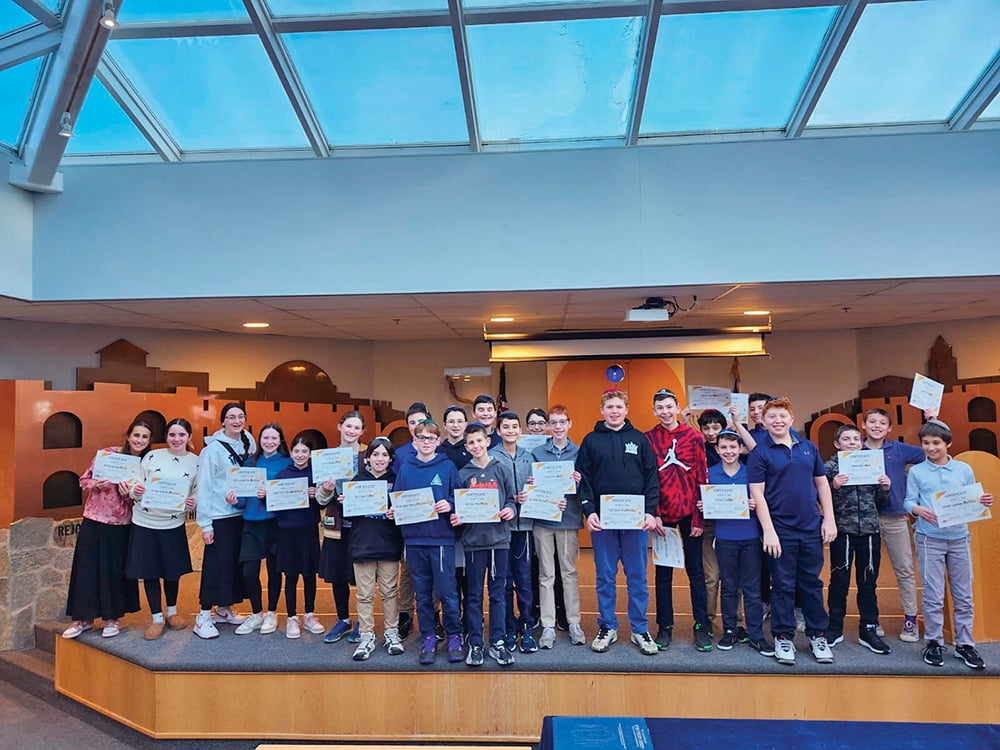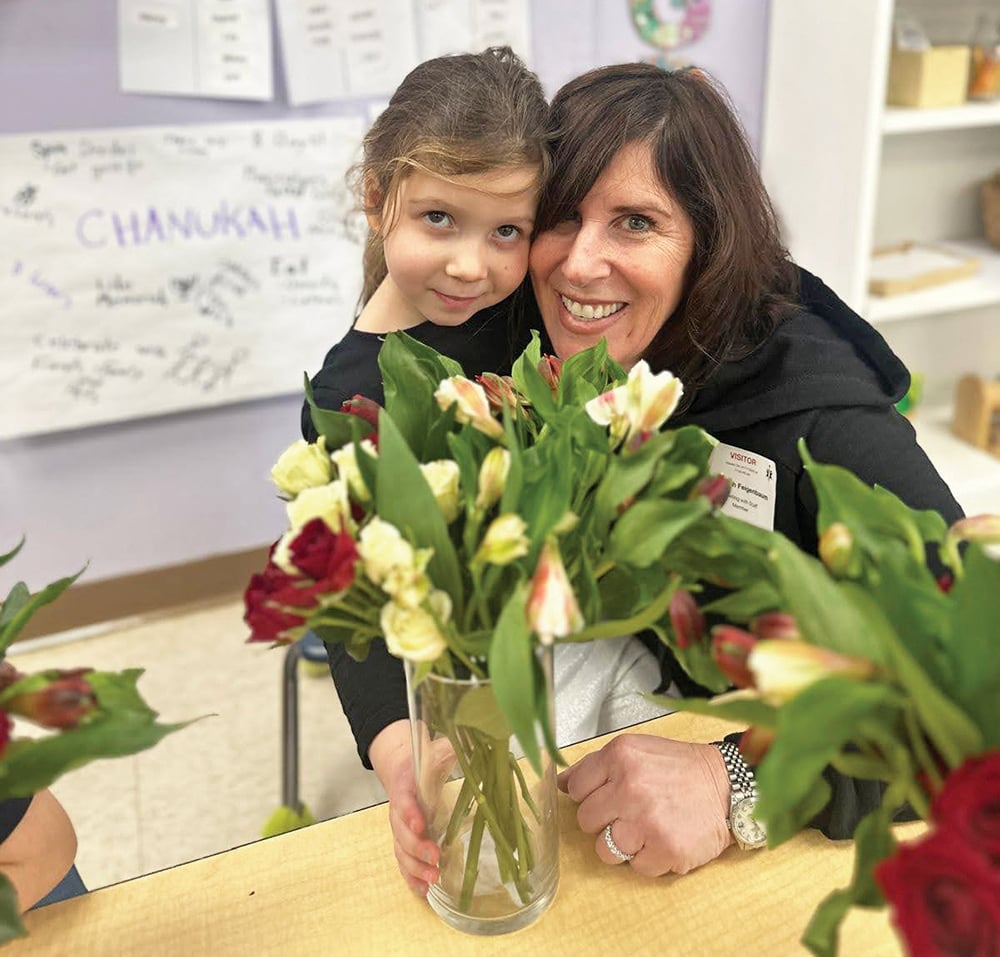

Torat Imecha’s Nach Yomi Program is dedicated by Eta Brandman Klaristenfeld in memory of her aunt Malka Nussbaum, Malka Esther Bat Tzvi Yoseph, z”l. With the goal of completing the 742 books of Nevi’im (Prophets) and Ketuvim (Writings) in two years, the program offers a daily podcast at the pace of a chapter a day. Shiurim are delivered by female Torah scholars from across the United States and Israel. An introductory video for each sefer is delivered by Rabbanit Shani Tarragin, noted Israeli Torah scholar. At the completion of each book, a virtual siyum is held to celebrate the conclusion of the sefer and to connect those women worldwide who accomplished this learning together, whether they participated on a daily basis or studied several chapters at a time. To date, close to 6,000 women receive the daily Nach Yomi podcast with more than 2,000 women logging in from 27 countries and 38 states across the U.S. Participants often include grandmothers, mothers and daughters
“Across geographic distances, hashkafa differences and a wide age range, Torat Imecha Nach Yomi is joining us together—at a time when there are so many divisions and challenges—to learn and infuse our lives and routines with the holy words of our sacred texts,” said Rebbetzin Dr. Adina Shmidman, founding director of the OU’s Women’s Initiatives, which has been disseminating Torah on a regular basis to thousands of women across the globe. “Who would have thought that when we launched Nach Yomi on January 7, 2020, to coincide with the new Daf Yomi Cycle, our new program of daily learning would provide such a comfort and daily anchor to a large swath of women worldwide who would shortly be facing a giant disruption in their daily lives due to the COVID-19 pandemic?”
The siyum for Sefer Yeshayahu was scheduled for noon on Monday, Aug. 10, to accommodate participants from time zones spanning Los Angeles to Israel and other far-flung locations. Rebbetzin Shmidman, who serves as the rebbetzin of the Lower Merion Synagogue in Bala Cynwyd, Pennsylvania, and who holds a master’s degree in Jewish education from the Azrieli Graduate Institute of Yeshiva University and a Ph.D. in educational psychology from the CUNY Graduate Center, hosted the siyum.
She noted that the completion of Sefer Yeshayahu aptly coincides with the current seven haftarot from Yeshayahu that are being recited on Shabbat. She expounded on the meaning of emunah, taken from a phrase in the seventh chapter of Yeshayahu. In that phrase, emunah refers to full confidence such as that of a newborn in his/her parents. So should the children of Hashem have full emunah, total confidence in Hashem, that He will eventually lift us out of this current difficult situation.
Shmidman went on to introduce the three presenters of the 66 chapters of Sefer Yeshayahu. Shira Schiowitz is the rebbetzin of Congregation Shaare Tefillah in Teaneck. She is a Tanach instructor at SAR High School where she also serves as director of professional development. She received her master’s in Bible from Bernard Revel Graduate School of Yeshiva University. Tasked with chapters one through 39, Schiowitz sees Yeshayahu’s message to the people as heavy but hopeful. Despite his censorship of the people, he offers them a hopeful vision. He shares his dream of better days “when swords shall be transformed into plowshares.”
The 19 middle chapters of Yeshayahu were presented by Amy Horowitz of Boca Raton, Florida. After earning a master’s in education from New York University, Horowitz discovered her passion for teaching Tanach, which she has been doing at the Katz Yeshiva High School in Florida for the past 17 years. She is also a frequent presenter to the adult community in Boca Raton. Horowitz proposed that the middle chapters of Sefer Yeshayahu, which are referred to as “kulo nechemta,” all-comforting, contain many words of rebuke as well. The role of the navi is not simply to comfort us with words we want to hear but also to provide us with a reality check and tell us what we must hear. Horowitz shared that she found the navi’s message to be of utmost comfort to her during these current challenging circumstances.
The final 27 chapters of Yeshayahu were presented by Rivka Foxbrunner. As a sought-after teacher and spiritual guide, Foxbruner has taught in the U.S. at Manhattan High School for Girls and the Stella K. Abraham High School for Girls and in Israel at a number of Jerusalem seminaries including Michlalah College, Midreshet Tehilla and Neve Yerushalayim. Foxbrunner posited that Sefer Yeshayahu conveys new ideas throughout all 66 chapters. The sefer is notable for three major components. First, for the balance and brilliance of each word that can be understood in many different layers. Secondly, it conveys the infinite depth of God’s love for His people. Finally, it promotes the concept of our accountability to Hashem. The navi shows us that redemption is a process. If we recognize that Hashem is with us now, even in dark times, we can eventually bring about redemption by revealing His presence amidst us.
The final presenter was Rachel Besser, sister of Shira Schiowitz, who resides in Clifton. Besser, who will present the beginning chapters of Sefer Yirmiyahu, is a teacher and department chair at Yeshivat Frisch where she teaches Tanach and Jewish philosophy. A graduate of Stern College, she holds a master’s in English literature from Hunter College. When asked about her presenting for Nach Yomi, Besser shared, “There is something wonderful about studying the books of Nach in order. You start to see themes develop and you come to realize that there are even connections between the different prophets as they quote from each other’s prophecies and add their own spin. I have seen over and over how relevant the messages of Nach are to today’s society and how much depth they convey.”
In closing the siyum, Shmidman invited the participants to provide through chat a word that best symbolized the message of Yeshayahu for them, which would be included in a “Wordle” in the next newsletter. With guitar in hand, she closed the program with a musical rendering of one of the many phrases from Yeshayahu that are included in our tefillot, “U’ba’u ha’ovdim b’eretz ashur v’hanidachim b’eretz mitzraim.” Shmidman offered an interpretation of the words suggested by Rav Schwab who sees “ashur” as people whose wealth prevents them from connecting with Hashem as well as “mitraim” representing people whose views are narrow, thus preventing them from integrating Hashem into their lives.
Coming in the next few weeks is the OU Women’s Initiatives teshuva video series leading up to the Yomim Noraim. “Yemei Ratzon—Ideas and Inspiration” will include presentations from Rosh Chodesh Elul through Aseret Yemei Teshuva by Rabbanit Shani Tarragin, Professor Smadar Rosensweig, Michal Horowitz, Rabbanit Rookie Billet and Rebbetzin Dr. Adina Shmidman.
In addition, a Tefilla Audio Series, to be presented daily in a 10-minute audio by 32 women across the globe, will be available from Rosh Chodesh Elul through Erev Yom Kippur.
For further information about these upcoming programs, visit www.OU.org/women.
By Pearl Markovitz
�


